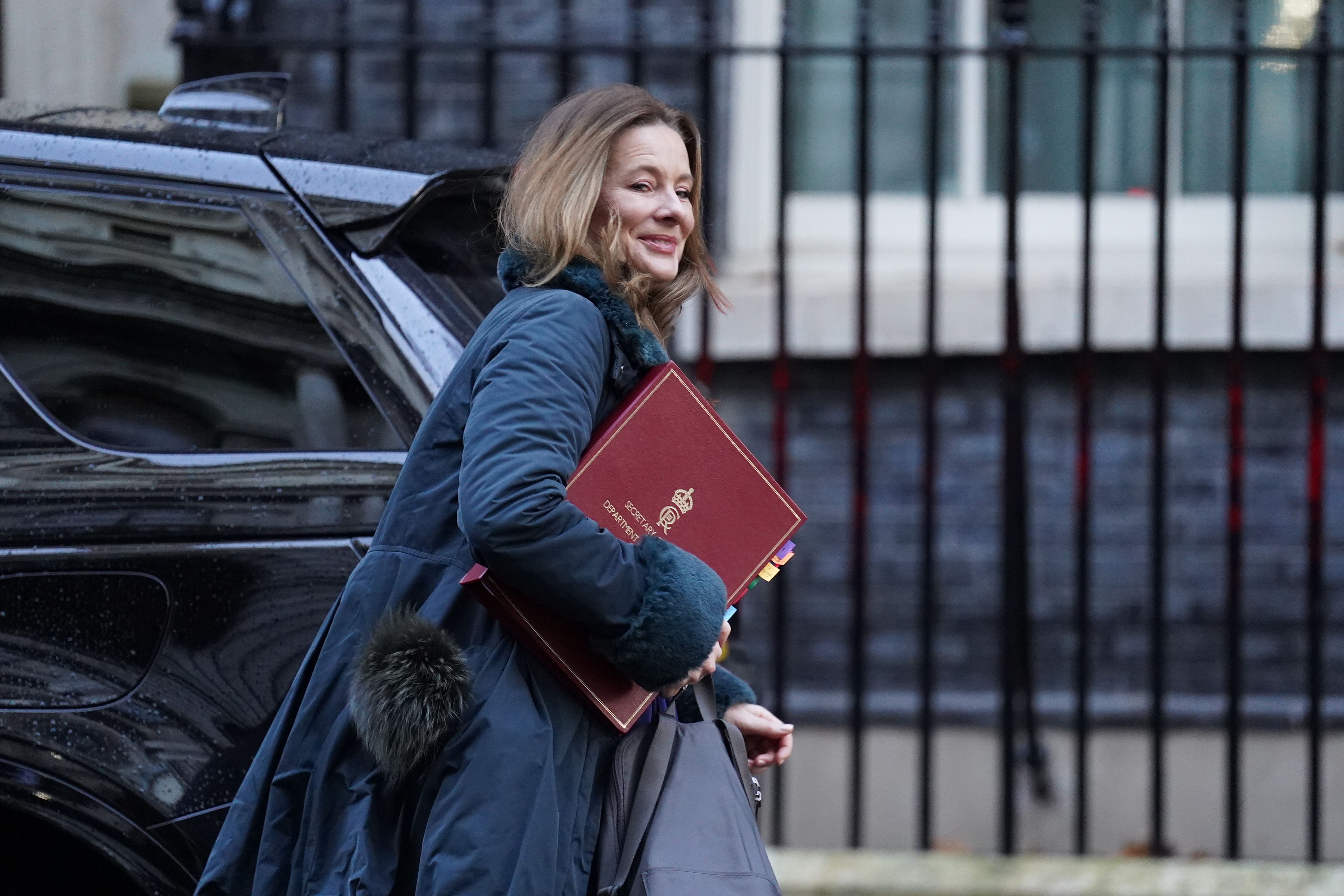Education Secretary cannot guarantee schools will stay open amid teacher strikes
Gillian Keegan said introducing minimum service levels would protect ‘vulnerable children’ in schools.

Your support helps us to tell the story
From reproductive rights to climate change to Big Tech, The Independent is on the ground when the story is developing. Whether it's investigating the financials of Elon Musk's pro-Trump PAC or producing our latest documentary, 'The A Word', which shines a light on the American women fighting for reproductive rights, we know how important it is to parse out the facts from the messaging.
At such a critical moment in US history, we need reporters on the ground. Your donation allows us to keep sending journalists to speak to both sides of the story.
The Independent is trusted by Americans across the entire political spectrum. And unlike many other quality news outlets, we choose not to lock Americans out of our reporting and analysis with paywalls. We believe quality journalism should be available to everyone, paid for by those who can afford it.
Your support makes all the difference.Education Secretary Gillian Keegan has admitted she cannot guarantee that schools will remain open during strikes by teachers starting next month.
Ms Keegan said introducing minimum service levels would protect “vulnerable children” in schools, but she hoped that the Government’s anti-strike legislation would not be needed for the teaching profession.
Her comments come after the controversial Strikes (Minimum Service Levels) Bill passed its first hurdle in the Commons on Monday.
It came just hours after the National Education Union (NEU) announced plans to hold seven days of walkouts in February and March in a dispute over pay.
Nine out of 10 teacher members of the NEU in England and Wales who voted in the ballot backed strike action, and the union passed the 50% ballot turnout required by law.
The Education Secretary is due to meet the NEU on Wednesday in a bid to avert the walkouts which are due to start on February 1, and which the union has said could affect more than 23,000 schools.
The Department for Education (DfE) has issued updated guidance to say agency staff and volunteers could be used to cover classes on strike days, with schools expected to remain open where possible, although remote learning is also an option and the most vulnerable pupils are to be given priority.
We’ll be working with headteachers to make sure as many schools are open for as many children as possible
Asked on ITV’s Good Morning Britain if she can assure parents that schools will open and children will be able to go to classes on strike days, Ms Keegan said: “I can’t guarantee that but we’ll be working with headteachers to make sure as many schools are open for as many children as possible.
“What I don’t know at the moment is for that one union that is taking industrial action, where those teachers are and how it impacts various schools. So that’s something we’ll be working through with heads.”
Appearing on LBC, Ms Keegan said the focus of the Government’s anti-strike legislation was mostly on rail and the health service, not schools.
She said: “It’s going to initially focus on health and rail, and education is in there, but we’re hoping not to use it for education because, at the moment, we’re not at that stage.
But Ms Keegan added: “We need to be able to keep schools open for vulnerable children, in particular. That is something we very much learned during the pandemic.
“So yes, we are part of the Bill, but at the moment, the focus initially will be on health and rail and then when we get to that stage, obviously, we’ll consider what is reasonable.”
The DfE has offered a 5% pay rise to most teachers for the current school year, but the NEU is demanding a fully funded, above-inflation pay rise.
Mary Bousted and Kevin Courtney, joint NEU general secretaries, said in a statement when the strike ballot result was announced: “It is disappointing that the Government prefers to talk about yet more draconian anti-strike legislation, rather than work with us to address the causes of strike action.”
The leaders added that pay cuts for teachers had created an “unsustainable situation”, adding that staff were leaving the profession “in droves”.
But on Tuesday morning, Ms Keegan insisted that teaching is still an “attractive profession”.
She told LBC: “We do still attract a lot of teachers. Where we struggle a little bit more is with maths and science and computer science.”
The teaching strikes are the latest to be announced in a wave of industrial action which has seen stoppages across various sectors in recent months.
Members of the Royal College of Nursing (RCN) in England are due to walk out again on Wednesday and Thursday, and have announced two more strikes in England and Wales on February 6 and 7, with more NHS trusts taking part than during two days of strikes in December.